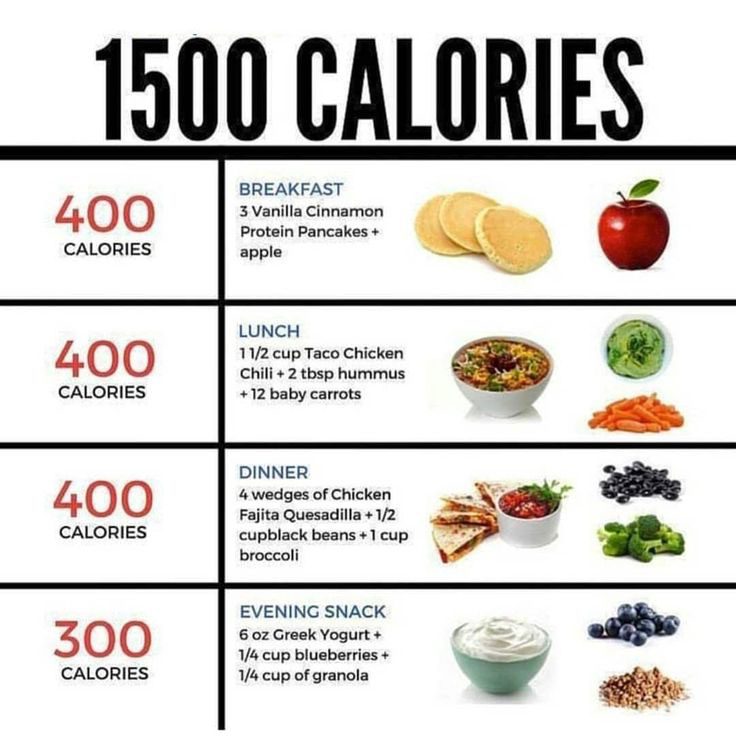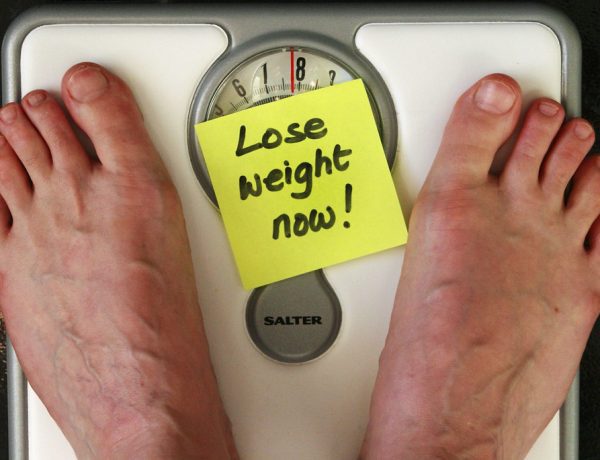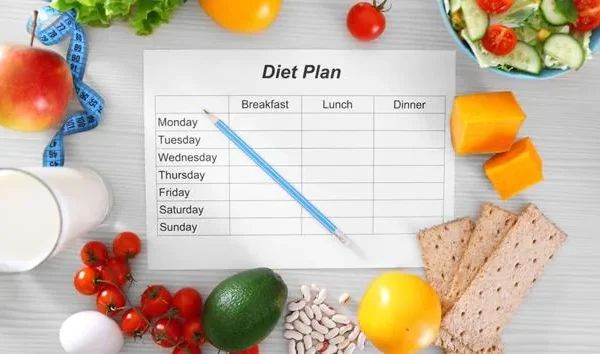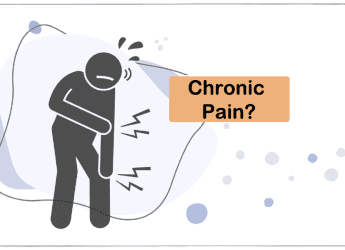Choosing which diet and fitness regimen to adhere to when trying to lose weight can be difficult. While different diets may take a different approaches, the fundamental idea behind them all is the same: burn more calories than you ingest. A calorie deficit in Calorie deficit weight loss diet is when you consume fewer calories than you burn off through exercise and daily activities.
The idea is simple, but there are a number of variables that might influence weight loss, and each person will have a unique calorie deficit. You should be aware that 7,000 calories make up one kilogram in total. Therefore, you need to create a daily calorie deficit of 1000 in order to lose one kilogram in a week. You can adjust the necessary calorie deficit while maintaining the aim as it relates to your goal. A 500–1000 calorie deficit is typically seen as healthy and doable.
Gaining Life by Losing Weight:
Obesity causes health problems, so losing weight leads to a healthier future. Weight loss calculators make weight loss efforts more precise by estimating the number of calories needed for various weight scenarios. The feedback provided depicts the caloric intake required to maintain the current weight as well as what would be required to gain or lose weight. There are numerous incentives to lose weight, which are supported by empirical data provided by the calorie calculator.
The Calorie Calculator can be used to estimate how many calories a person should consume per day in calorie deficit weight loss diet. This calculator can also provide some basic weight-gain or weight-loss guidelines.
How much of a calorie deficit does one need to lose weight if on a calorie deficit weight loss diet?
It can be difficult to calculate your exact calorie deficit, but in general, cutting 500 calories from your daily intake should result in one pound of weight loss per week. If you want to lose two pounds per week, try a daily calorie deficit of 1,000. You just don’t want to lose any more calories than that.
Calorie deficit weight loss calculator
This calculator will determine how many calories you need each day to maintain, gain, or lose weight. After you accomplish your goal, it will then let you know how many calories you need to consume to maintain your new target weight. It’s not required to provide information in the “body fat %” section, but doing so should result in a somewhat more accurate total daily energy expenditure (TDEE) result.
Calorie deficit weight loss plateau
When your weight doesn’t go down, you’ve reached a weight-loss plateau. Every person who attempts to lose weight eventually reaches a weight-loss plateau. Even so, considering they continue to practice a healthy diet and regular exercise, most people are shocked when it occurs to them. The frustrating truth is that weight loss initiatives sometimes stagnate, even when they are well-planned. Read here which diet is best for weight loss.
Calorie deficit weight loss meal plan
A tried-and-true method for losing weight, the calorie deficit diet plan relies on eating fewer calories than you burn off through weight loss. This diet is based on the straightforward idea of calories in vs. calories out, according to which you will lose weight if you consume fewer calories than your body requires. You can also read some quick and super healthy dinner recipe ideas in our health recipe blog section. Either consuming less food or increasing physical activity can result in a calorie deficit (or both). Here are some foods to include in your calorie deficit diet to aid weight loss:
- Fruits
- Non-Starchy Vegetables
- Lean Protein Sources (Fish And Lean Meat)
- Whole grains, etc.

Calorie deficit weight loss per week
A 500-calorie deficit per day is a good starting point for healthy weight loss. This should put you on track to lose 1 pound per week. This is based on a daily calorie intake of at least 1,200 to 1,500 for women and 1,500 to 1,800 for men. It can be harmful to consume less than that amount of food per day. Consult your doctor about the bare minimum of calories you require.
Remember that you may not require a calorie deficit at all. It is only necessary if you want to lose weight for medical or other reasons.
500 calorie deficit weight loss!
A 500-calorie deficit means that you consume 500 fewer calories per day than you normally do to maintain your weight. To achieve this deficit, you must manually count your calories or use a calorie counting app. Using either of these two methods, you can create a 500-calorie deficit meal plan to help you lose weight. Snacking is a major contributor to weight gain. If you don’t want to change your meals right now but still want to be on a 500-calorie deficit, check your snacks and eliminate the ones with the most calories.
For example, one doughnut has about 452 calories, so cutting it out could help you get closer to your goal. You can replace snacks With Healthier Alternatives.
1000 calorie deficit weight loss!
A 1,000-calorie diet plan is an eating plan that drastically reduces the number of calories consumed each day. This type of diet is considered dangerous by various trusted sources because it provides significantly fewer calories than the average adult requires for health and well-being. When people are desperate to lose weight quickly, such as before a vacation, they may turn to 1,000 calorie diets. While adults could follow this type of diet relatively safely for a couple of weeks, doctors do not recommend it for long periods of time. A large body of research indicates that when people do not eat a balanced diet with enough calories for their needs, it can harm their health and trigger disease.
800 calorie deficit weight loss!
The 800-calorie diet is a very low-calorie diet that promises rapid weight loss to anyone who follows it. Very low-calorie diets should only be attempted when advised and closely monitored by a physician. This eating plan requires people to consume 800 calories per day for a set period of time.
Most people will need to stick to this eating plan until they reach their weight loss goals, which could be in preparation for surgery or for another medical reason. The 800-calorie diet plan, like any other available eating plan, must be designed in such a way that it incorporates all food groups. This is important not only for weight loss but also for good health.
1500 calorie deficit weight loss!
The 1,500-calorie diet is a diet plan in which a person’s daily caloric intake is limited to 1,500 calories. This diet may be tried by people who want to control their food intake and lose weight. According to a reliable source, the average female can lose one pound per week by limiting her daily caloric intake to 1,500 calories or less. To lose the same amount of weight, the average male may need to consume up to 2,000 calories per day.
As everyone’s caloric needs differ, a one-size-fits-all approach to weight loss is unlikely to be effective for everyone. Setting a daily calorie goal of 1,500 may be too low for some people, making it unsustainable over time.

700 calorie deficit weight loss !
A 700-calorie diet, also known as a very-low-calorie diet, is a legitimate weight-loss method that promises significant calorie burn. This diet is based on the idea that eating about 700 calories per day will help you lose weight. The 700-calorie diet is intended for obese people who need to lose weight as soon as possible, usually for medical reasons. The diet is sometimes prescribed by doctors to treat diabetes or to prepare for surgery or fertility treatment.
In these cases, the diet is followed for a maximum of 12 weeks under the supervision of the physician. Obese people, defined as those with a BMI greater than 30, can lose up to 3-5 pounds per week by following a low-calorie diet. As a result, following a 700-calorie diet plan for 12 weeks can result in an average weight loss of 44 pounds.
300 calorie deficit weight loss!
According to reports, 1 pound of fat equals approximately 3,500 calories. As a result, burning 300 calories equals less than a tenth of a pound of fat. However, burning more calories than you consume each day can result in consistent weight loss. If you continue to burn 300 calories per day, you will gradually begin to lose weight.
600 calorie deficit weight loss !
The 600 calorie diet is a form of intermittent fasting. The 600 calorie per day diet for weight loss can be safe if done in moderation. It can be an effective diet regimen to lose weight if limited to two days per week. The two-day restriction will not cause you to lose muscle mass as long as you eat a healthy, balanced diet on the other days of the week and meet your daily calorie maintenance level.
If you limit your daily calorie intake to 600, you will be around 2000 calories below your daily calorie maintenance level. This forces your body to use stored calories in the form of body fat to meet your energy requirements for the day. You will lose fat as a result.
200 calorie deficit weight loss!
Eating at a 200-calorie deficit is a healthy way to lose weight that isn’t too difficult for most people. While a 200-calorie deficit is simple to maintain, you should only expect to lose one pound every 3-4 weeks. Losing 10 pounds on a 200-calorie deficit will take 30-40 weeks. A smaller caloric deficit, such as 200 calories, is healthier and more sustainable. A 200-calorie deficit is a great strategy if you aren’t in a hurry to lose weight and would rather have a simple diet to follow than lose weight quickly.
400 calorie deficit weight loss!
A 400-calorie deficit is considered a healthy and sustainable deficit for reaching your weight loss goal. You can expect to lose 0.5-1 pound per week if you stick to a 400-calorie deficit. A 400-calorie deficit can be achieved by simply reducing your portions at each main meal. Eating at a 400-calorie deficit is healthy as long as you’re not already underweight because it’s not extreme enough to cause any negative side effects that would harm your overall health.
Conclusion
If a person wishes or needs to lose weight, creating a calorie deficit may be beneficial. This can be accomplished through a combination of diet and exercise. They should try to eat more nutritious foods, drink more water, and exercise regularly. Also, there are formulas and online calculators available to assist people in estimating how many calories they burn per day. A person can then estimate how many calories they should consume in order to create a calorie deficit. To avoid potential health issues associated with a lack of nutrients, a person should aim to lose not more than 1-2 lb per week.





























No Comments